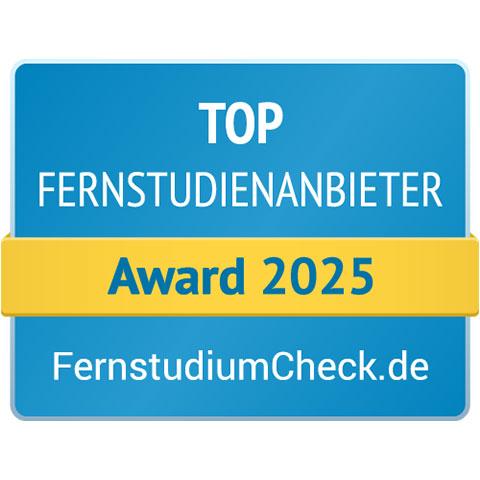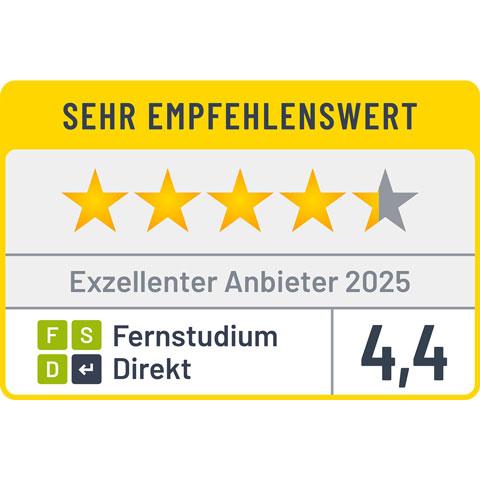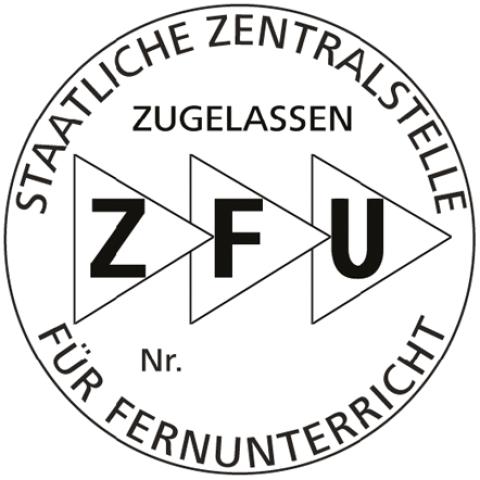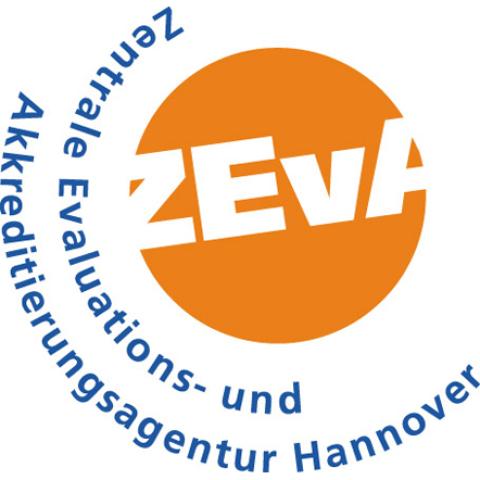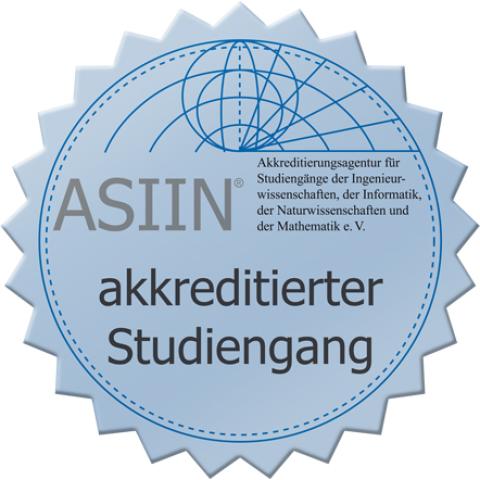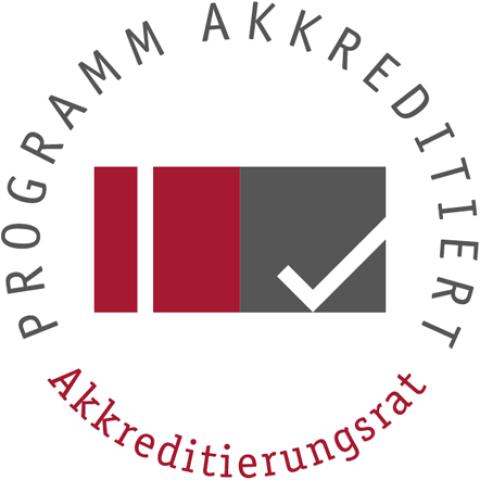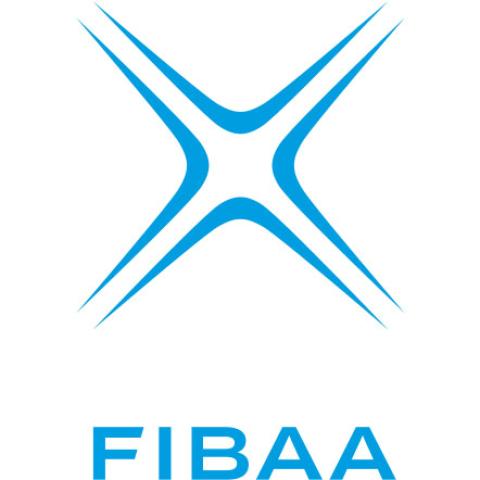Mastering Innovation and Management in Industrial Engineering
Our Industrial Engineering programme is designed for individuals passionate about innovation and enhancing products, processes and corporate structures. It is a comprehensive engineering programme that also covers business, management, the circular economy, digitalisation and ethics. The curriculum is structured in a way that meets the industry's demand for engineers who work at the intersection of management and technology. This Master’s programme will equip you with the skills necessary to advance into management positions.
The Industrial Engineering programme is intended for students with a background in industrial engineering, a technical-scientific area or a closely related subject.
Degree
Master of Science 120 ECTS
Length of study
4 semesters (2 years)
Study location
Stade (near Hamburg)
Starting dates
April 1st (except 2026)
October 1st
Entry requirement
Completed university degree in (industrial) engineering, a technical-scientific area or a closely related subject
Tuition fees
€890 per month plus €34.80 external fees
€500 admin fee (one-off), waived for EU citizens
€500 enrolment fee (one-off)
€1,000 examination fee (one-off)
Study content
The Master's programme lasts four semesters, during which you deepen your knowledge in engineering and management as well as digitalisation and sustainability.
You will gain practical knowledge through numerous projects and case studies each semester. In preparation for the job market, you will not only acquire the required theoretical knowledge in the field of engineering, but you will also acquire important skills to help you apply this knowledge in practice and learn how to use the relevant tools.
A scientific-theoretical orientation of the Master's programme is shown in the examination of current research statuses in the lectures, as well as in the preparation of scientific papers.

Module 1: Consolidation of Mathematics and Technical Mechanics
Students develop a deeper understanding of engineering concepts, enabling them to understand complex relationships, analyse theoretical and practical problems and assess the quality of calculation results. Furthermore, the students are enabled to communicate and discuss complex issues in an understandable form within a team of employees.
Module 2: Advanced Project Management
Students explore agile methods and their application in manufacturing, preparing for digitalisation and business process restructuring. They learn to differentiate between classic and agile project management, define roles, plan complex projects and integrate agile processes into company structures. Practical experience and teamwork skills are strengthened through group discussions and independent projects.
Module 3: Big Data
Student will dive into the topic of machine learning. They will focus on concepts, methods and models such as cluster analysis, decision trees and neural networks to address questions arising from large data sets. Students learn to evaluate and apply these techniques, understand their limitations and gain skills in OLAP and data mining to assess business intelligence architectures and implement analysis processes.
Module 4: Innovation and Digital Transformation
This course teaches students how digital transformation drives market shifts and the need for companies to adapt and align business models with digital developments. By the end, students can evaluate existing models and develop sustainable, complex digital strategies.
Module 5: Legal and Ethical Issues in Engineering
This module trains engineers to integrate ethical considerations when protecting ideas or technologies. Through case studies and research, students learn to identify and critically assess intellectual, social and ethical issues in engineering, enhancing their ability to analyse challenges, coordinate discussions and think critically.
Module 6: Sustainable Development / Circular Economy
This module emphasises the growing significance of sustainability in products and systems. Through lectures and best practice presentations, students connect theory with practice, learn to assess green engineering principles and develop effective sustainability solutions. This training enhances their skills in tackling complex issues and fostering environmental responsibility.
Module 7: Sensor Technology and Application
In this module, students learn to digitise analogue time signals, analyse them in the frequency domain and implement digital adaptive controllers. They apply adaptive algorithms for system identification, noise suppression and disturbance control. Additionally, students explore sensor technology, focusing on measurement systems used in quality control within manufacturing.
Module 8: Advanced Materials and Technologies
In this module, students learn about the latest 3D printing technologies. They explore how to decide which technology works best for different shapes and objects and learn how to choose the right method for each project. They master material characterisation, quality issue resolution and both additive and subtractive manufacturing methods. They also master slicing methods for product models and designing strategies for composite component production.
Module 9: Information Technology and Cyber Security
Students learn the importance of data protection and security, including legal foundations, risks and standards. They can design and implement IT security systems, improve communication in automation and apply their knowledge to create and manage intelligent models for simulations in virtual and augmented reality.
Module 10: Digital Technologies
This module provides in-depth knowledge of the Industrial Internet of Things (IIoT), simulation and virtual reality, enabling students to tackle tasks at the intersection of engineering, data processing and sustainability. Students learn to design and develop IIoT components, apply simulation and virtual reality methods and create and optimise models for industrial processes, enhancing human-machine communication and technology engagement.
Module 11: Management Accounting
In this module, students learn how to plan, manage and adapt business processes and strategies in response to changes in the environment, with a focus on maintaining financial stability and maximising profits. They also develop expertise in strategic and operational controlling, risk management and making financial decisions under uncertainty, applying these skills through business management simulations.
Module 12: Change Management and Leadership
This module prepares students for leadership in global businesses by addressing strategic and operational challenges in a global environment. Through discussions and practical exercises, students build cultural awareness, explore diverse leadership styles and learn to implement effective, sustainable strategies.
Module 13: Quality Assurance and Quality Control
Students learn to assess quality management systems and non-destructive testing methods, apply these procedures in small groups and evaluate the results. They are trained to make responsible decisions on quality-relevant methods, critically analyse conventional and novel approaches, and develop improved solutions.
Module 14: CRM and Sales Psychology
In this module, students explore customer relationship management (CRM) and sales psychology, learning key tools and methods. They analyse and design CRM processes, assess decision-making biases and evaluate trade-offs. Students also develop strategies to influence behaviour by applying psychological insights to economic decisions.
Module 15: Personal Selling in a Digital World
Upon completing this module, students gain in-depth knowledge of sales, including pitch strategies, negotiation tactics and problem-solving approaches. They learn to identify digital sales channels, analyse customer needs and evaluate business models integrating service offerings. Additionally, students enhance teamwork and presentation skills by creating and presenting a video on the topics covered.
Module 16: Global Logistics and Supply Chain Management
The module focuses on Global Logistics as a crucial management function for companies operating in global markets. It covers supply chain management at both operational and strategic levels, emphasising distribution and transport challenges. Students learn to apply quantitative algorithms to real-world problems and develop solutions while focusing on management decisions.
Module 17: Project / Practice Module
In this module, students will apply the knowledge gained throughout their studies to practical projects, thus qualifying them for the labour market. They will form interdisciplinary teams, working as independent members to tackle real-world problems. This will test their problem-solving skills, teamwork, project management skills and ability to apply theory to practice.
Module 18: Master´s Thesis
Master's Thesis and Defence
Am I eligible for the Industrial Engineering Master's degree programme?
Admission requirements
- A Bachelor’s degree in (Industrial) Engineering, in a technical scientific field or another related subject
Language requirements
- English proficiency at a minimum level of B2 (CEFR), to be certified with:
- English language certificate: TOEFL iBT score 87, IELTS score 6.5, Duolingo score 120, LanguageCert Academic score 70 or equivalent.
- Alternatively, a document stating that the medium of instruction for your Bachelor's course was English.
Career Opportunities for Industrial Engineers
Master's students develop the ability to work in companies and organisations as well as in start-ups, for example as innovation managers, product managers, strategic planners and sales engineers.
-
Production Management
Industrial Engineering is a versatile specialisation focused on enhancing efficiency across various sectors. With a Master's degree in Industrial Engineering, you are well-equipped for roles in production management, where your expertise in optimising processes and systems is invaluable. You can apply your skills to streamline manufacturing operations, improve resource management and implement advanced engineering solutions. Your background also enables you to transition into product management, where you can oversee the development and success of specific products, leveraging your efficiency-focused mindset to drive innovation and performance.
-
Innovation Management
Businesses should stay innovative to keep up with the competition. To ensure that innovative ideas are successfully implemented, companies hire innovation managers. They are not necessarily responsible for inventing new products, but instead, their main task is to observe the market for new ideas and products and to accompany the development process from concept to execution. You will work with colleagues from many areas such as company management, research and development departments, controlling, sales and marketing.
-
Strategic Planning
Strategic planning responsibilities fundamentally involve shaping a company's basic business strategy, developing strategic plans and evaluating company performance as well as conducting research and data analysis to help make business decisions. With a Master's degree in Digitalization and Automation, you can specialise in every area of manufacturing. You plan machines, materials, personnel and deadlines in such a way that all orders can be processed smoothly.
-
Sales Engineering
As a sales engineer, you are responsible for the marketing of mostly high-priced technology goods in the B2B area. You can work in numerous technology-oriented sectors (e.g., mechanical and plant engineering, electrical, information and telecommunications, medical technology) with products and services that require explanation. On the one hand, you have the appropriate professional competence to present the special products to existing and potential customers as well as to specialists and non-specialist decision-makers. On the other hand, you need to adhere to the sales targets set by the company and plan and act in a result-oriented and sustainable manner.

Studying in Stade
Our Hanseatic campus is located in the middle of the CFK Valley Stade. In addition to modern workshops, laboratories and seminar rooms, the university has its own canteen and invites you to linger in the greenery around the campus buildings in good weather.

Job Guarantee
Since there are plenty of job openings in the German job market, we are confident our students will find jobs quickly after they finish studying. That's why we're offering a 20% refund on full tuition fees if they don't land a job within 9 months of graduating.
To be eligible for the refund, the student must have:
- successfully completed their studies within the regular study period,
- shown proof of a B2 level German language proficiency in form of a certificate,
- defended their Master’s thesis in German,
- achieved a minimum thesis grade of 2.5.
Receive more information

Experts at PFH

Among other positions, Wilm Unckenbold has been the managing director of INVENT and is currently a freelance engineer. At PFH, Unckenbold was Vice President for Technology and Continuing Education from 2015 to May 2025.

Prof. Dr.-Ing. Heinrich Fehren made a significant development contribution to the ATC system for suppressing torsional vibration in convertibles, and was awarded the District of Göttingen's innovation prize in 2007. Since December 2007, he has been Professor of Adaptronics at the PFH Private University of Applied Sciences.

Julian Voss studied Business Administration at PFH from October 2001, specialising in IT Business Account Management and Eastern Europe, and graduated with a Diploma in September 2005.

After completing his doctorate, Richard Degenhardt worked as a structural engineer. In addition to his professorship at PFH, he is currently working at the Institute for Composite Structures and Adaptive Systems at the DLR.
FAQ – the most frequently asked questions
At PFH University, you can apply at any time.
- Application form via our website
- Curriculum Vitae (CV)
- Letter of motivation
- School leaving certificate (University Entrance Certificate)
- Bachelor's degree certificate (or provisional certificate, if not yet awarded)
- Transcript of records for your Bachelor's degree
- Proof of English proficiency (minimum B2 level)
- English language certificate: TOEFL iBT score 86, IELTS score 6.5, LanguageCert Academic score 70, Duolingo or equivalent.
- Document stating that the medium of instruction of your Bachelor’s course was English.
- An employment reference is optional, though highly recommended
- Copy of passport
- Digital photo for your university card
- Chinese, Vietnamese, and Indian students must obtain an APS Certificate from the Academic Evaluation Center to complete the admission process.
Yes, you will need proof of advanced English language skills, e.g., Bachelor’s taught in English, TOEFL iBT score 86, IELTS score 6.5, LanguageCert Academic score 70, Duolingo or equivalent.
If you are a citizen of a country in the EU, EEA or Switzerland, you do not require a visa or other documentation to enter Germany and study here. However, once you arrive and find accommodation, you must register with the local residents’ registration office.
If you are coming from a country other than the ones named above, you will require a visa. For more information specific to your home country, please visit the Federal Foreign Office website.
At PFH University, we offer international students three types of scholarships:
- STIBET-Programmes
- DAAD Prize
- Deutschland Stipendium/Germany Scholarship
For more information on each of the scholarships, click here.
During your studies, you are generally allowed to do 120 full days or 240 half-days of paid work and take small student jobs. In exceptional circumstances, your local Foreign Office may impose further restrictions.
International students coming to Germany have two options when it comes to accommodation: student halls of residence and private accommodation. For more information, you can visit the Accommodation Finder of the Federal Ministry of Education and Research or contact our International Office.
When you compare Germany to other European countries, you’ll find that it’s not very expensive. The living costs are just slightly higher than the EU average, with rent being the largest expense. On average, students in Germany spend around 850 EUR per month (750 EUR in Göttingen for the management degree).


